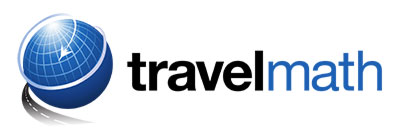Travel Math: The Essential Guide For Savvy Travelers
Share

Traveling can be one of the most rewarding experiences in life, but it often comes with its own set of challenges. One of the most crucial aspects of planning a trip is understanding the math behind it. From calculating distances and travel times to budgeting for expenses, mastering travel math can enhance your travel experience significantly. This article will guide you through the essential calculations every traveler should know, along with tips on local attractions, cuisine, accommodations, and unique experiences.
Understanding Travel Distances and Times

When planning a trip, knowing how far you need to travel and how long it will take is vital. Travel math helps you estimate the time required for your journey, whether you're driving, flying, or taking public transport.
Distance Calculations
To calculate the distance between two locations, you can use online tools or apps that provide distance measurements. For example, if you're traveling from New York City to Los Angeles, you can find that the distance is approximately 2,800 miles.
Time Calculations
Once you have the distance, you can estimate travel time based on your mode of transportation. For instance, if you're driving at an average speed of 60 miles per hour, the trip would take about 46 hours of driving time, not accounting for breaks or traffic.
Local Attractions
When you arrive at your destination, knowing the distance between local attractions can help you plan your itinerary effectively. For example, if you're in Los Angeles, you might want to visit the Hollywood Walk of Fame, which is about 10 miles from Santa Monica Beach.
Budgeting for Your Trip

Budgeting is another critical aspect of travel math. Understanding your expenses can help you avoid overspending and ensure you have enough funds for your trip.
Estimating Costs
Start by estimating your travel costs, including flights, accommodations, meals, and activities. For example, if your flight costs $300, your hotel is $150 per night for five nights, and you plan to spend $50 per day on meals, your total budget would be:
- Flight: $300
- Hotel: $150 x 5 = $750
- Meals: $50 x 5 = $250
Total Estimated Cost: $1,300
Currency Conversion
If you're traveling internationally, you'll need to consider currency conversion rates. Use online calculators to convert your budget into the local currency. For instance, if you're traveling to Europe and the exchange rate is 1 USD = 0.85 EUR, your $1,300 budget would be approximately €1,105.
Planning Your Itinerary
.png)
Creating a well-structured itinerary is essential for maximizing your travel experience. Travel math can help you allocate time for each activity and ensure you see everything on your list.
Time Allocation
When planning your itinerary, consider how much time you want to spend at each attraction. For example, if you plan to visit three museums in one day, and each museum takes about two hours, you should allocate at least six hours for museum visits, plus travel time between them.
Unique Experiences
Don't forget to include unique local experiences in your itinerary. For instance, if you're in Paris, you might want to allocate time for a cooking class or a wine tasting. These experiences often require advance booking, so factor that into your travel math.
Finding Accommodations

Choosing the right accommodations can significantly impact your travel experience. Use travel math to compare prices and find the best deals.
Price Comparisons
When searching for hotels, compare prices across different platforms. For example, if one hotel charges $100 per night and another charges $120, consider the amenities and location. Sometimes, spending a little more can save you time and transportation costs.
Booking Your Stay
Once you've found the perfect accommodation, book your stay through reliable platforms. For a hassle-free experience, consider using this link for hotels and flights to secure your booking.
Transportation Options
Travel math also plays a crucial role in determining the best transportation options for your trip.
Public Transport vs. Car Rentals
Evaluate the costs and convenience of public transport versus renting a car. If you're in a city with a robust public transport system, it might be more economical to use buses or trains. However, if you're planning to visit remote areas, renting a car could be more practical.
Transfers
If you need to arrange transfers from the airport to your accommodation, consider using reliable services. You can book transfers easily through this link for a smooth arrival.
Conclusion
Mastering travel math is essential for any traveler looking to make the most of their journey. By understanding distances, budgeting effectively, planning itineraries, and choosing the right accommodations, you can enhance your travel experience. With the right calculations and planning, your next adventure can be both enjoyable and stress-free. Happy travels!



